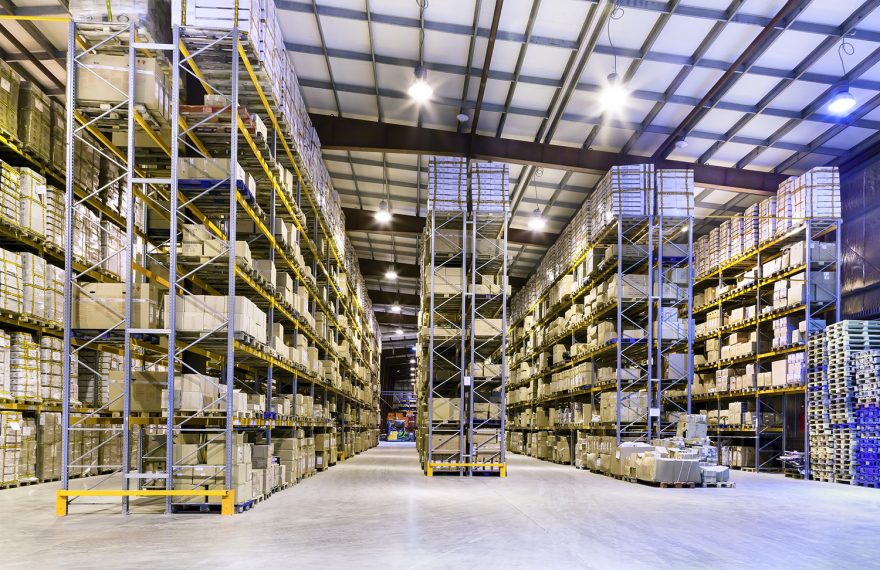
E-Invoicing and Its Geopolitical Stakes
France’s electronic invoicing reform relies on a Y-architecture, where Partner Dematerialization Providers (PDPs) play a central role in issuing and…
Medial International Chooses Generix Warehouse Management System (WMS) to Digitalize Its Logistics Operations Read the press release

Supply Chain Management with a 3PL Logistics service providers increasingly offer services that go beyond simple storage. In particular, Third Party Logistics (3PLs) offer a range of services that cover the entire Supply Chain. They provide specific expertise, regular monitoring, and effective communication, particularly regarding customs formalities.
This type of service differs from 1PL operators, who provide limited subcontracting, exclusively dedicated to domestic transportation services, from loading to goods distribution. There is also an intermediary group, the 2PLs, who enhance their services with inventory and storage solutions. These are generally carried out at the facilities of the contracted company.
In this article, we present you with 5 reasons to outsource your Supply Chain through 3PL (Third Party Logistics), also known as third-party logistics or outsourced logistics.
Save Time Through the Operational Know-How of 3PLs 3PLs allow you to focus on your core business and avoid wasting financial, technical, and human resources on activities over which you have little or no control. Engaging a 3PL provides you with quick access to all operational logistics and the skills necessary to perform tasks that would take a significant amount of time if done internally. According to the 2022 edition of the Third-Party Logistics study, 73% of shippers agree that using 3PL operators provides new and innovative methods to improve logistical efficiency.
1. Cost Pooling and Significant Economies of Scale
The subcontractor is better positioned to offer competitive prices, lower than the costs generated by internal development of the same activity. They benefit from cost pooling, larger economies of scale, and greater expertise. Moreover, when outsourcing transportation, storage, and order processing, it’s possible to reduce costs related to employees, warehouses, your own fleet of vehicles, or even Supply Chain equipment management. According to the Third-Party Logistics study, 64% of shippers agree that using 3PL services has reduced their overall logistics costs.
2. Facilitate International Implementation
Having multiple 3PL companies with worldwide storage space can significantly contribute to speeding up the distribution of your product. If you are targeting an international market or another country, for example, this can give you a competitive advantage in your market.
3. Reduction of Risks and Limitations
Logistics outsourcing reduces potential risks, from system unavailability and unexpected volume spikes to theft or even complete chain breakdown. A domino effect that would result in penalties for suppliers, credit notes for customers, and a deterioration of your company’s reputation. For both your employees and the company itself, outsourcing frees you from the following limitations:
4. Maintenance/replacement of Supply Chain machinery.
Management of driving hours and compliance with legal obligations. Accounting management. Recruitment, training, replacements. Human Resources management (salaries, hiring, firing, sick leaves, etc.). Adaptation of workforce to seasonality and activity spikes (recruitment, training, taxes, etc.).
5. Maintain Full Visibility Over Your Logistics Operations
utsourcing your logistics might make you feel like you have no control over this activity. However, through a collaborative 3PL portal, you will have complete real-time visibility into all operations of your supplier. You will have a collaborative solution to manage and monitor warehouse operations and optimize the implementation of logistics activities.
These 5 advantages translate into a significant improvement in customer satisfaction, a benefit highlighted in the study by 73% of 3PL service users.

France’s electronic invoicing reform relies on a Y-architecture, where Partner Dematerialization Providers (PDPs) play a central role in issuing and…

The B2B mandate in Germany, set to take effect on January 1, 2025, marks a crucial step in the European…

Following the October 15 announcement regarding the abandonment of the PPF development, the DGFIP and its partner AIFE are ramping…

Work with our team to build your ideal supply chain software stack and tailor it to your unique business needs.